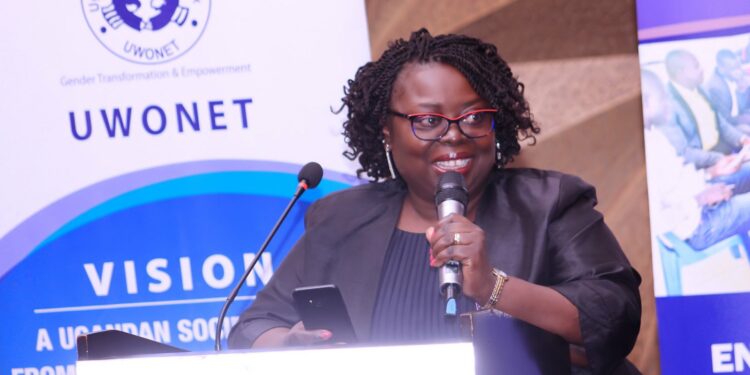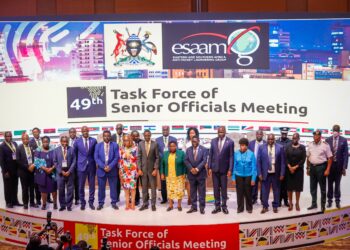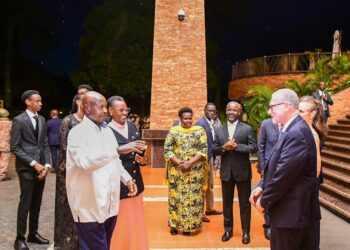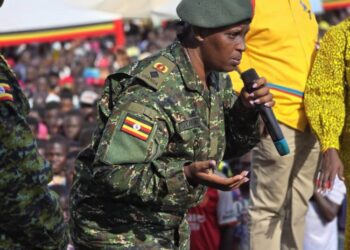As Uganda commemorates the 30th anniversary of the Beijing Declaration, the Executive Director of the Uganda Women’s Network (UWONET) Aciro Rita called for renewed commitment and urgent action to eliminate Gender Based Violence in Uganda.
During the National Dialogue commemorating the 16 Days of Activism Against Gender-Based Violence (GBV) at the Sheraton Hotel on Monday, the discussion centred around the theme “Towards Beijing +30: UNiTE to End Violence Against Women and Girls.” Aciro emphasized the ongoing prevalence of violence against women and girls in Uganda, calling for renewed commitment and urgent action to eliminate GBV in all its forms.
Despite significant legal frameworks in place, the Executive Director emphasized the need for stronger implementation, public awareness, and government investment to protect the rights and dignity of women and girls across the country.
“The Beijing Declaration was a pivotal moment in history, and while we’ve made progress, we cannot ignore the reality that violence against women and girls remains pervasive and continues to undermine the progress we’ve made,” the Aciro stated. She pointed to disturbing statistics that highlight the ongoing prevalence of GBV in Uganda, underscoring the need for urgent collective action.
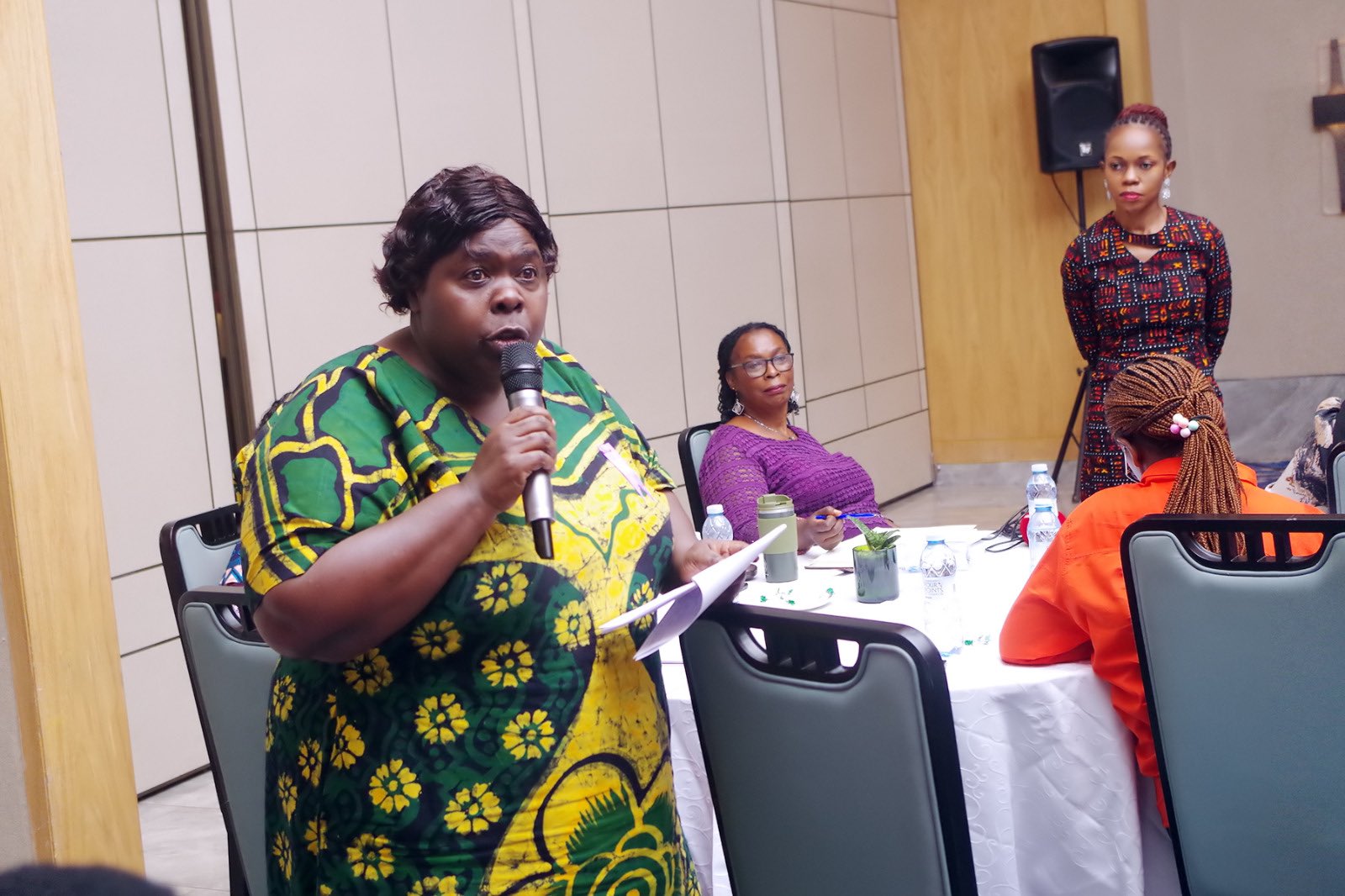
According to the Uganda Demographic and Health Survey (UDHS) 2022, physical, emotional, and sexual violence continues to plague women and girls across the country. The 2023 Annual Police Crime Report registered 14,681 cases of domestic violence, 1,577 cases of rape, and 8,925 cases of defilement. However, these numbers represent just a fraction of the true scale of the problem, as many survivors remain silent, trapped by stigma, fear, and a lack of access to justice.
“GBV doesn’t just affect the physical well-being of women and girls; it undermines their dignity, erodes their mental health, and traps them in cycles of poverty and illiteracy,” she emphasized. “It destabilizes families, communities, and the nation at large. This is why eradicating GBV is critical for sustainable development.”
Aciro highlighted many forms of violence that women and girls face today, from physical and sexual violence to economic and psychological abuse. Domestic violence, often normalized within households, remains rampant, while sexual violence, including rape, defilement, and sexual harassment, continues to disproportionately affect women and girls. The growing issue of online violence, including cyberbullying, harassment, and revenge pornography, was also highlighted as a new and emerging threat to women’s safety, particularly as digital spaces become increasingly accessible.
The recent tragic death of Olympian Rebecca Cheptegei, murdered by her boyfriend over an alleged land dispute, was cited as one of the many femicide cases that continue to shock the nation. “Rebecca’s death is a stark reminder of the devastating reality many women face,” she said. “Her murder is just one of many examples of the extreme forms of violence that women in Uganda face daily. We must confront this issue head-on and demand change.”
Aciro also referenced the personal experience of Kaliro MP Namukuta Brenda, who publicly revealed she is a survivor of GBV. “This shows us that even those in positions of power and influence are not immune to the scourge of violence. It affects everyone, regardless of their status or position,” she remarked.
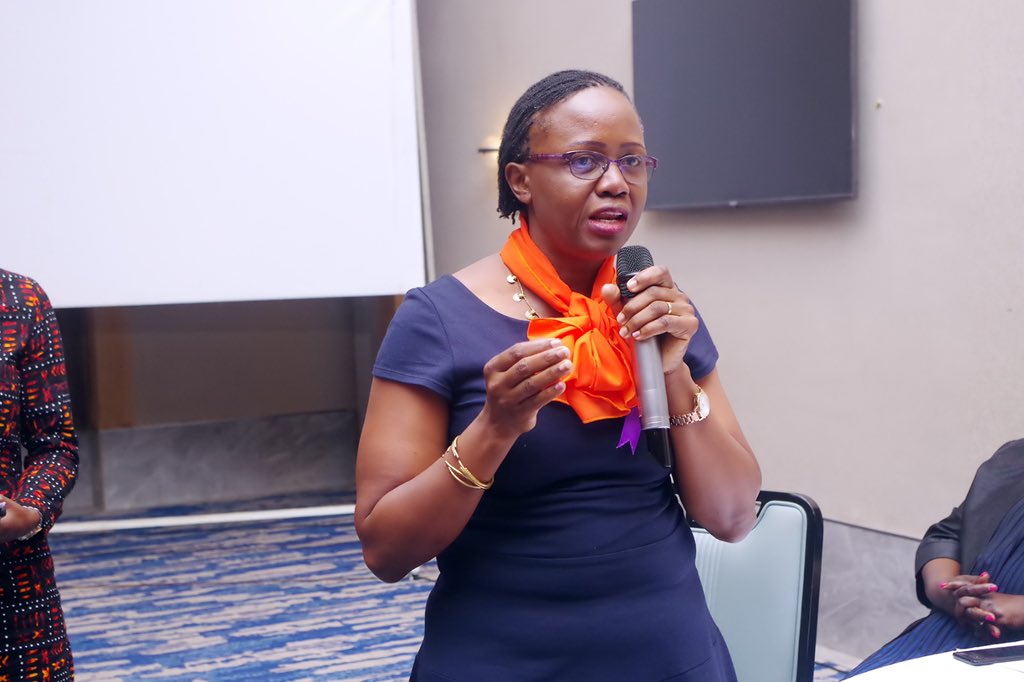
Despite the existence of legal frameworks such as the Domestic Violence Act 2010, the Anti-FGM Act, and the Constitution of the Republic of Uganda, the implementation of these laws has been hindered by inadequate funding, weak enforcement, and persistent harmful cultural norms. Aciro called on both the government and the public to take immediate and sustained action to address these systemic challenges.
“Policies and laws are only as good as their implementation,” she said. “It is time for us to recommit ourselves to the fight against GBV. We must strengthen our justice systems, ensure survivors have access to timely justice, and break down the barriers that keep women and girls trapped in cycles of abuse.”
She outlined a series of recommendations for addressing GBV, emphasizing the need for comprehensive and coordinated action across all sectors of society. “We must invest in public awareness campaigns, challenge harmful cultural norms, and engage men and boys in promoting gender equality and challenging toxic masculinity,” she said. “Technology must also be leveraged to create safe reporting mechanisms, amplify advocacy, and counter online violence.”
Aciro also called on the government to allocate more resources to ensure the effective implementation of existing laws and to support local initiatives tackling GBV. “Ending violence against women and girls is not just a moral imperative; it is a critical step toward achieving gender equality and fostering a society where every individual, regardless of their gender, can thrive.”
“Let us not only reflect on the progress made over the past 30 years but also look ahead with renewed determination. Together, we can break the silence, challenge harmful norms, and UNiTE to end violence against women and girls.”
Meanwhile, UWONET’s National Dialogue served as a critical reminder that the fight against GBV is far from over and that it will require collective, sustained efforts to create a safer, more equitable future for all.
With the 30th anniversary of the Beijing Declaration as a backdrop, Uganda stands at a crossroads, where the opportunity to make real change is within reach if the nation is willing to act with urgency, commitment, and resolve.
Do you have a story in your community or an opinion to share with us: Email us at editorial@watchdoguganda.com


